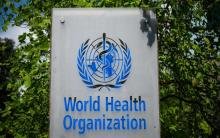WHO Honors Countries for the First Time for Eliminating Industrially Produced Trans Fats
The World Health Organization (WHO) recently recognized and honored countries that have successfully eliminated industrially produced trans fats for the first time. This commendable achievement holds significant importance for aspirants preparing for government exams, especially those eyeing positions in teaching, police, banking, railways, defense, and civil services like PSCS to IAS.
In a groundbreaking move, WHO acknowledged the efforts of nations in eradicating industrially produced trans fats, a crucial step towards promoting public health. This development is particularly relevant for candidates gearing up for competitive exams as it aligns with health-related issues that are often part of the syllabus.
The Global Health Concern:
Trans fats have long been identified as a major health hazard, contributing to heart diseases and other health complications. The WHO initiative underscores the global commitment to addressing and eliminating these harmful substances.
Recognition for Health Conscious Nations:
Countries that have successfully eliminated industrially produced trans fats are now being recognized by the WHO. This recognition serves as an encouragement for other nations to prioritize public health and take necessary steps to eliminate harmful dietary components.
Relevance to Government Exams:
Aspirants preparing for government exams should be aware of global health issues, as they often find a place in the question papers. The elimination of trans fats is a significant move that reflects the emphasis on preventive healthcare, a topic that can be crucial in exams.
Why this News is Important:

Why this News is Important
The WHO’s recognition of countries for eliminating industrially produced trans fats is a development of utmost significance, both globally and for aspirants preparing for competitive exams.
This recognition is crucial as it highlights the global impact of reducing trans fats on public health. Aspirants need to comprehend the broader implications of such health-related initiatives, which might be part of their exam syllabus.
For government exam takers, understanding how nations play a role in promoting health is essential. This news showcases the proactive measures taken by governments to safeguard the well-being of their citizens.
Historical Context
Background:
The drive to eliminate industrially produced trans fats has been ongoing for years. The WHO’s involvement in setting guidelines for healthier diets and urging countries to take actions against trans fats dates back to the early 2000s. Over the years, nations have been working towards reducing and eventually eliminating these harmful substances from their food supplies.
Relevance to Current News:
The recent acknowledgment by WHO marks a significant milestone in this ongoing effort. Countries that have successfully eliminated trans fats have demonstrated a commitment to improving the health of their populations, adding a positive chapter to the global fight against non-communicable diseases.
5 Key Takeaways from WHO Honors Countries for Eliminating Trans Fats
| Serial Number | Key Takeaway |
|---|---|
| 1 | WHO recognizes countries for eliminating trans fats. |
| 2 | Trans fats are a major global health concern. |
| 3 | Public health initiatives impact government exams. |
| 4 | Ongoing global efforts to reduce harmful substances. |
| 5 | Historical context highlights a long-term commitment. |
Important FAQs for Students from this News
Q1: What is the significance of WHO honoring countries for eliminating trans fats?
A1: The recognition signifies global efforts to combat health issues, specifically related to heart diseases and public health awareness.
Q2: How does this news impact government exam aspirants?
A2: Aspirants need to be aware of global health initiatives, and this news highlights the relevance of preventive healthcare, often a part of exam syllabi.
Q3: Why are trans fats considered harmful, and why is their elimination crucial?
A3: Trans fats contribute to heart diseases, and their elimination aligns with global health goals to promote healthier diets.
Q4: What is the historical context of eliminating industrially produced trans fats?
A4: Efforts to eliminate trans fats have been ongoing since the early 2000s, with WHO setting guidelines for healthier diets.
Q5: How does the acknowledgment by WHO impact nations’ commitment to public health?
A5: The acknowledgment serves as an encouragement for nations to prioritize public health and take proactive measures.
Some Important Current Affairs Links

















